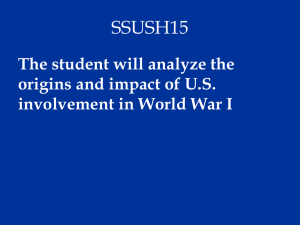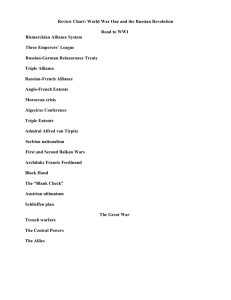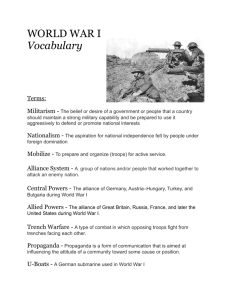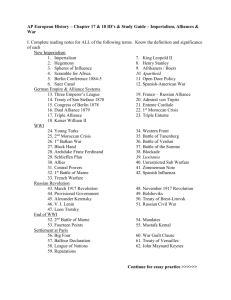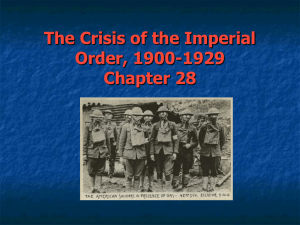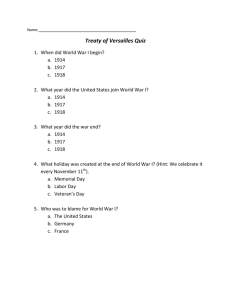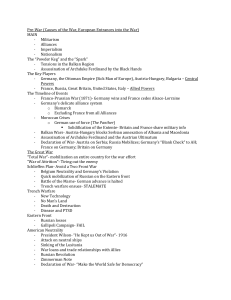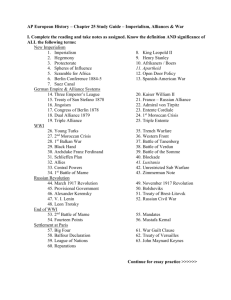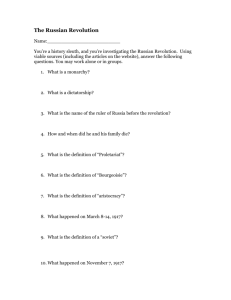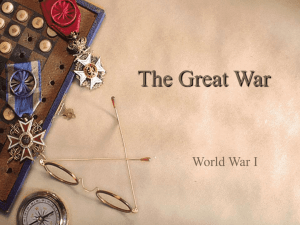WHII.10 WWI Terms 1
advertisement
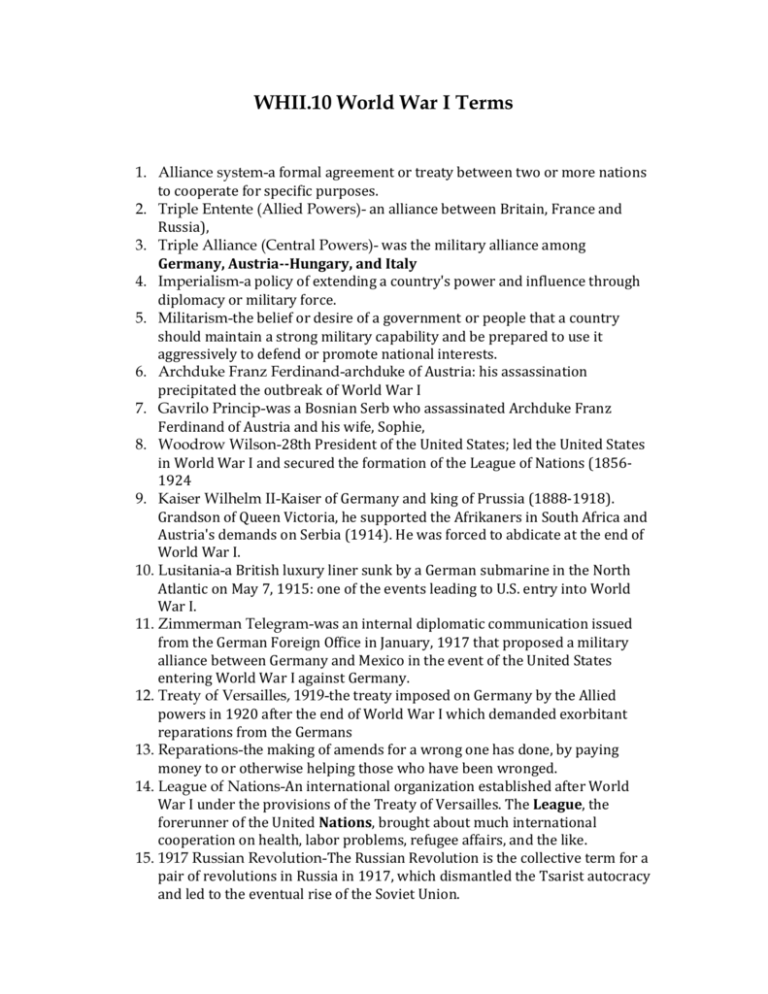
WHII.10 World War I Terms 1. Alliance system-a formal agreement or treaty between two or more nations to cooperate for specific purposes. 2. Triple Entente (Allied Powers)- an alliance between Britain, France and Russia), 3. Triple Alliance (Central Powers)- was the military alliance among Germany, Austria--Hungary, and Italy 4. Imperialism-a policy of extending a country's power and influence through diplomacy or military force. 5. Militarism-the belief or desire of a government or people that a country should maintain a strong military capability and be prepared to use it aggressively to defend or promote national interests. 6. Archduke Franz Ferdinand-archduke of Austria: his assassination precipitated the outbreak of World War I 7. Gavrilo Princip-was a Bosnian Serb who assassinated Archduke Franz Ferdinand of Austria and his wife, Sophie, 8. Woodrow Wilson-28th President of the United States; led the United States in World War I and secured the formation of the League of Nations (18561924 9. Kaiser Wilhelm II-Kaiser of Germany and king of Prussia (1888-1918). Grandson of Queen Victoria, he supported the Afrikaners in South Africa and Austria's demands on Serbia (1914). He was forced to abdicate at the end of World War I. 10. Lusitania-a British luxury liner sunk by a German submarine in the North Atlantic on May 7, 1915: one of the events leading to U.S. entry into World War I. 11. Zimmerman Telegram-was an internal diplomatic communication issued from the German Foreign Office in January, 1917 that proposed a military alliance between Germany and Mexico in the event of the United States entering World War I against Germany. 12. Treaty of Versailles, 1919-the treaty imposed on Germany by the Allied powers in 1920 after the end of World War I which demanded exorbitant reparations from the Germans 13. Reparations-the making of amends for a wrong one has done, by paying money to or otherwise helping those who have been wronged. 14. League of Nations-An international organization established after World War I under the provisions of the Treaty of Versailles. The League, the forerunner of the United Nations, brought about much international cooperation on health, labor problems, refugee affairs, and the like. 15. 1917 Russian Revolution-The Russian Revolution is the collective term for a pair of revolutions in Russia in 1917, which dismantled the Tsarist autocracy and led to the eventual rise of the Soviet Union. 16. Tsar Nicholas II-The last czar of Russia (1894-1917), Bolshevik Party- a member of the majority faction of the Russian Social Democratic Party, which was renamed the Communist Party after seizing power in the October Revolution of 1917 17. Vladimir Lenin-Russian founder of the Bolsheviks and leader of the Russian Revolution and first head of the USSR (1870-1924) 18. New Economic Policy-a program in effect from 1921 to 1928, reviving the wage system and private ownership of some factories and businesses, and abandoning grain requisitions. 19. Joseph Stalin-Russian leader who succeeded Lenin as head of the Communist Party and created a totalitarian state by purging all opposition (1879-1953) 20. Mandate System-was a compromise between the Allies' wish to retain the former German and Turkish colonies and their pre-Armistice declaration (November 5, 1918) that annexation of territory was not their aim in the war. 21. Stock Market Crash of 1929-also known as Black Tuesday,[1] the Great Crash, or the Stock Market Crash of 1929, began on October 24, 1929, and was the most devastating stock market crash in the history of the United States, when taking into consideration the full extent and duration of its fallout.[2] The crash signaled the beginning of the 10-year Great Depression that affected all Western industrialized countries 22. National Socialists German Workers’ Party (Nazi Party)- Under the leadership of Adolf Hitler (1889-1945), the National Socialist German Workers’ Party, or Nazi Party, grew into a mass movement and ruled Germany through totalitarian means from 1933 to 1945.

